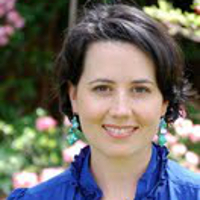I’ve been wondering what life might look like five to eight years from now. I don’t know what the future holds, but one scenario might include the following:
– Gasoline prices fluctuate between $6-9 per gallon. Some cities/towns have instituted gasoline rationing to ensure that ambulances, police vehicles, and key workers can get to work.
– Electricity prices have increased by 300% and blackouts are common. When power goes down due to storms, damaged lines, it sometimes takes weeks to repair.
– Food from industrial agriculture has become extremely expensive.
– The “economy” and the “government” are struggling to transform to meet the basic needs of the citizens. Social Security, Medicare, and unemployment payments have disappeared.
What would a day in that life look like?
**********************************
In June, we wake up at 5 am when the sun rises. It’s important to get our outside work done before the heat of the day. Since we can’t afford A/C, we try to take siestas, or at least not move much, from 11 to 3. The ceiling fans help, and we’ve found that our bodies are getting used to the absence of climate control. I’ve seen a lot of lovely sunrises in the past few years from getting up at the crack of dawn.
I weed and water our back and front yard gardens, take care of our three chickens, and collect a few eggs, some greens, scallions and cherry tomatoes for a family omelet. The milk has already been delivered this morning, so we can have some milk as well. The garden has been growing larger every year, and we now get 80% of our fruits, vegetables, herbs, and eggs from our property. A few times a year, when the persimmons or kiwis ripen, we have enough produce to sell at the market.
I cook the omelet on our electric range, glad that the electricity is on today. We have a small solar powered electricity system, which reduces costs, but since we don’t have a battery system it only works when the whole grid is on. Coal has become so expensive to transport from Wyoming, wind and solar are the cheaper options for generating electricity now. Of course, like most people we have outdoor wood fired stoves, camp cook stoves and a Sun Oven, but some things are just easier and faster to cook on the electric range, especially when I’m hungry in the morning. Since the electricity is on, I plan to run a few loads of laundry in the washing machine today.
I note that we are out of cheese and trust that the neighborhood Farmer’s Market has some today. Farmer’s Markets have sprung up all across the city as people try to make some extra money with their backyards, and since most people only travel to the “grocery store” once a month now, for staples. Our small Suggs Park Farmer’s Market is in the parking lot of a former office park just a few blocks away, but there is also a larger market in the parking lot of Penn Square Mall, which is just a few blocks further.
It’s hubby’s day to work from home. His programming job at a major retail chain has been cut back to three days a week, and one of those days he telecommutes. Since he only works 24 hours a week, we no longer qualify for the full-time benefits, but his salary is still enough to pay the bills. The loss of health insurance benefits really worries me – especially for my son. We have savings in the case of an accident, and we pay for regular dental care, but there’s no way we could pay to treat the worst diseases if they were to strike. Transition Town OKC is still working on a network of Mutual Aid societies, local health and accident insurance plans managed as non-profits by people we know and trust. The pilot plan looks promising, but so far we haven’t managed to get one up and running here in our neighborhood.
The laptop my husband uses for work only draws a small amount of electricity, so I don’t mind the drain on our solar power. Tomorrow he will be helping me work at our Transition Suggs Park Co-Op farm, which is on the site of the former Monroe elementary playground and Smitty Park, with grazing for goats all along the medians and public spaces where there are still lawns. We work there for four hours once a week in exchange for daily fresh milk, corn, and dried beans. The work is strenuous, but fun when there’s a group of us. Sometimes we deliver the milk, sometimes we hoe the corn patch. It’s always something different.
Now that the school year has been trimmed due to budget cuts, my son is out of school from May to August, as well as from December to February (when heating and cooling costs are highest). Since he is eight, he spends part of the day helping us around the house and garden, part of the day at the neighborhood rec center, and part of the day exploring and having fun with his friends. Next year he is considering starting a business as a bike messenger / delivery boy around the neighborhood.
I want to head to the Farmer’s Market before it gets too hot out. First, I check with a few elderly neighbors to see what I can pick up for them, then I walk a few blocks to see if my sister in law wants to take the trip with me. We were lucky enough to help my husband’s sister’s family move up near us when gas hit $5 a gallon. Their house is smaller than their old one, but here in our neighborhood they are within walking distance of a library, Farmer’s market, a scavenging shop, and we have a rec center for the kids. Also, Chesapeake has a hybrid corp-bus that runs in this area, which takes my brother in law to work.
On the way to the Farmer’s market we see several friends and stop to chat. We’re usually not in a hurry these days, and talking to friends is one of our best entertainments. It sounds like there is a block party being planned for the Fourth of July – we’re invited to come and bring some of our home-brew. My husband is well-known in the neighborhood for his tasty Flat Tire and Plush Porter beer. He usually brews once a week, on his Mondays off, and we trade out the beer for various services and goods that we need. We’ve considered going into business, but brewery licenses are pretty pricey, so we just use the beer for bartering. And partying.
Our friends also want to discuss some Transition Suggs Park business. Since six years ago, when TSP was founded, we have made some great improvements in the quality of life of our residents. It was a little slow-going at first; we mainly just encouraged emergency preparedness and gardening and tried to raise awareness about the peak oil situation. However, since the city cut services, and with unemployment at record highs (except for oil and gas workers) we have had to work together to try to meet our needs. We managed to salvage a lot of the city services by hyper-localizing them – we now have police and firefighters and mini-medi-clinics right here in our neighborhood.
As we walk over to the farmer’s market, I marvel at how clean the air smells. We have to cross Northwest Expressway, but the cars are only going 25 mph, which is the new city speed limit, and there are few cars now on the road. There are even speed bumps on the crosswalk. The neighborhood put the speed bumps in after that moron ran over the third grader on her bike.
We can hear the Penn Square Farmer’s Market four blocks away – sounds like they have a band playing today. PSFM is one of the best Farmer’s Markets in the city, if I do say so myself. We have added ten new producers in the last year and we now are able to meet most of our food needs within a thirty mile radius except for a few commodities and luxury items – like wheat, salt, and coffee.
The trip takes much longer than it would have in the days when we were just shopping. But the Farmer’s Market is a place to exchange information, schedule activities with friends, and arrange barters – not just to buy food. There is always someone who needs help or wants to tell you about their new business or who has a great idea for a community project. The problem is trying to get out of there in less than two hours! People still use the Internet to buy and sell things locally, but it’s even better to buy and sell from someone you actually know. A lot of people can’t afford Internet or computers anyway.
Ah, home. I put the perishables in the underground storage room that we built a few years ago to replace our fridge. We weren’t able to make the transition to the “root cellar” storage until we found a local source of daily milk and got our chickens, but once that happened it was fairly easy. We still have a small chest freezer that we use to store some food, but it uses way less energy than a fridge.
It’s only eleven am, but I need to put the bread out in the Sun Oven to make sure I have enough time to cook the bread and dinner as well. Cooking with the Sun Oven isn’t any harder than a cooktop, but it does take more advance planning, and of course sun. I’ll put the bread in now, and dinner in a few hours. There are a few clouds out, so I cross my fingers. Then I take a nap.






